PDF:TEXT:Dr. Paul 0:28
Good morning CHD Welcome to pediatric perspectives. This is where we are looking at children's health challenges from a different perspective. One that includes critical thinking, one where we're not afraid to give you the honest truth. I'm your host, Dr. Paul. And today we're covering a topic that is so important to pediatric health and wellness, and that is toxins, and also what's making our kids sick. My guest today is pediatrician environmental expert, Michelle perot. Michelle, welcome to the show. Dr. Michelle Perro, MD 1:03 Paula, pleasure. Thank you. I love what you do in the world. So delighted to be here. Dr. Paul 1:09 So I had the privilege way too many years too late to read your book, just in the last 24 hours. I knew I was going to interview I had not read this book, you and I have some background that's sort of parallel. We you started off in ER medicine, I think Pediatric Emergency I started a pediatric urgent care emergency room at a hospital Children's Hospital in different ways we came to a similar parallel kind of conclusion that our kids weren't doing well. Maybe start off with just a quick version of you know, what caused you to change direction from mainstream approaches, and to ultimately writing this book that's so important. What's making our children sick? Certainly, Dr. Michelle Perro, MD 1:49 Paul, I'll give you the thumbnail. As most things I've learned in my career, it's been parents parents teaching me a thing or two, not often the other way around. And as a mom, in my practice, who didn't meet needed me to get on her board to stop a pesticide spray that was to occur along the entire coast in Northern California. And they formed a group moms in a kitchen. It was amazing. I was so reluctant, so resistant, busy mom, two kids, you know, you know, the dog cat, the whole thing. And I said, Of course I'll do it. You know, I would love to do it. I did it. They stopped the spray. I say they because they did all the heavy lifting. I drink a lot of coffee. But then what happened one of those moms introduced me to Jeffrey Smith's book, seeds of deception, about GMOs and pesticides. And she said, Michelle read this book. So when a man tells me to do something, I listened. Paul, I learned that about 40 years ago, read the book. And even before I got into page 16, that book correlated with the work of the first scientist to study GMOs. His name is Dr. Arpad Posty. He passed several years ago, he talked about what he saw in rats and GMOs. And when I read his work and started understanding the situation, because we just started eating GMOs and pesticides, I realized that the rise in chronic health issues I was seeing in kids, particularly gut and autism, which I was not happy about, and I was doing mostly acute care at that point, a lot of urgent care. And I was already a homeopath because of my own son's issues. So long story, and it will leave that story aside. And then I said, Oh my God, and then lightbulbs Broadway music. I was convinced, shifted gears and got heavy, full on into environmental health, with a focus on GMOs and pesticides. But then, over time, it encompassed the gamut of toxins and toxins affecting and assaulting our children. What Dr. Paul 3:45 I saw and I in reading your book, I realized you saw and you just spoke about it. We were seeing kids, unlike our own childhoods, where kids were healthy other than you know, the occasional measles, mumps, rubella thing, and chickenpox. Our peers were healthy, we didn't see eczema, asthma, autoimmune conditions, type one diabetes, and certainly not all the neurodevelopmental issues from autism spectrum to severe ATD, ADHD and all the anxiety and depression. So it's like, we're looking at our what's happened, something has changed. Genetics don't change that fast. So you did this deep dive into it's got to be the environment, and you're spot on and, and the thing that I want our listeners to realize is that the key to the solution is one understanding the problem and then to understanding what you can do about it and you do a such a great job in your book about empowering the reader, the parents who should read this book about the solution is really food. I mean, eliminating the toxins maybe just elaborate a little bit in general, regardless of the chronic condition your child might be suffering from, where do you begin and what's sort of the The no brainers. Dr. Michelle Perro, MD 5:01 So if you look at our food based on three essential issues, the majority of our crops are subsidized by government. And they are for the most part, genetically modified crops which includes soy, corn, canola, cotton, cottonseed sugar from sugar beets, and there's a few more about 10. But and they're constantly evolving new ones, like almost every day like bananas and others. So it's, there's now GMO apples, Arctic apples, there are GMO potatoes and a potatoes. But the main crops are the crops that children eat soy, corn, canola, shouldn't be. And those are the same crops that are in processed foods. So if parents can switch off processed foods processed and ultra processed to a whole food diet, that's battle number one, because not only do processed foods have those various GMOs and pesticides, but they also have emulsifiers. Other chemicals, preservatives, they often have dyes, heavy metals, like titanium, etcetera, etcetera. They are toxic soup. So go back to basics, and we have to get every family in the kitchen, cooking it again, not just mom, everyone in the family, kids dog, not the dog, everyone, everyone in the in the family cooking, and kids love to chop, they love knives, especially boys. Gender comments. So everyone's cooking. That's number one. Number two is parents have to get the memo, we have to shift to organic regenerative food, I used to say just organic. Now I'm saying organic regenerative because you can grow or organic crops, and they have very little nutrition. Which brings me to point three is nutrient density. The foods over the past decades, I used to say four, it might be longer. I've seen reports of anywhere from 40 to 90% lowered nutrients from about four decades ago. So the amount of broccoli a kid would have to eat to get the sulfur or the or the other the zinc and, and food has really shifted. And back in the day. Paul, when we first started, you know, 2030 years ago, I rarely use even multivitamins and children because I said eat a healthy diet eat the rainbow. Now, whoa, not so fast. Now I'm saying some kids definitely need support, but not if we're giving them Doritos. So families have to become the champions, the whole family has to change. It can't be you're just feeding one kid who has got issues, you have to shift the entire family. And we know that this improves family life because there's tons of data, which shows that kids that eat together with the parents do better, particularly teens. And this shift can happen anywhere. And so what I do is I've asked families to take pictures of their pantry, their fridge, their freezer, the liquor cabinet, we, I should say that not for the kid. Because we have to end the spice rack, get rid of the GMOs. And of course, growing your own if you're an apartment, you can grow herbs in your windowsill some herbs are more nutritious than the veggies actually. And so this is how we have to make the start. We have to make this transition because not only are is are there glyphosate based herbicides in your food, Roundup Ready Roundup Ready crops. But because of weed resistance, we use more herbicides, more genetically modified crops, things like two, four D Dicamba. And the average food has at least six pesticides, which means insecticides, fungicides, herbicides, yep, the cocktail. Dr. Paul 8:37 So parents, I even for myself, I get overwhelmed at the thought that almost everything out there in the grocery store other than truly organic produce is just loaded with things that are going to harm our health, and we're supposed to take care of our children. The food is is toxic, right? It's just not okay. And so if you are suffering with a child who's got whatever I mean, you know, we started to list some of these conditions but any chronic condition, you may well have the solution. Right? What you're talking about Michelle, it's it's it has starts with the food. I think because you have such expertise in environmental health. I wanted to do a little deeper dive into the the worst toxins. Okay, so you touched on glyphosate. From what I can tell glyphosate is such a pervasive product, that it's almost impossible to avoid it. And then if you could also touch on BT toxin because I think that's what's in the dairy and the milk. So I know for myself when I was taking care of patients with eczema with asthma with neurodevelopmental issues being on the spectrum. It all started with you know going organic and Identifying food sensitivities. Why are why is glyphosate so harmful? What is it doing? What's it doing in our bodies? Dr. Michelle Perro, MD 10:09 There's so many toxic ins right? We have seen that over 80,000 chemicals in the environment. Ew G did that great umbilical cord study 10 years ago now maybe no longer showing the average baby born polluted pre polluted with 286 chemicals. So there are many. We why do we focus on glyphosate because it's an everything because we've measured it. And there are lots of data how much glyphosate is in that stuff. Why is it so bad? Because it is amino acid like its emphasis on on methyl glycine. So it looks a lot like lysine, which is ubiquitous, non essential meaning we we can make it amino acid which are the building blocks of protein. So there's looks like glyphosate and glycine can swap out. Now what makes it equally toxic is that it kills off the beneficial microbes in your gut. To that's bad. It binds the minerals you need to run biologic systems minerals are needed for reactions, especially enzymatic reactions, like what minerals are we talking about? magnesium, manganese, copper, calcium, zinc, and it's a key later, meaning it binds key lights means to bind. it impairs your ability to dock detoxify through the cytochrome P 450. Detoxification system. It also is a carcinogen, yes. And great data out of the World Health Organization what? Well, let's leave them aside. I arc, the International Agency for Research on Cancer. We know it's a carcinogen. And that's not bad enough. What got me screaming in 2020 is a paper came out, which showed how glyphosate causes not correlates causes autism in rodents, and the pathway was elucidated. So when I saw that I said, Oh, look, you see, here's the paper, we can stop using this stuff never happened. So those are just for the things. It's also let me give you a few more, it's an endocrine disruptor, which means it disrupts the metabolic pathway, which can lead to issues with type two diabetes, which we're seeing up and obesity, and other metabolic derangements. So I think those are the main things it does and even has other toxicity other than that. Now, Paul, I would be remiss if I didn't talk about the AAP position paper that came out a month or two ago talking about GMOs and pesticides. And Bravo, they did talk about how pesticides were bad, but they gave GMOs a pass. There are not a lot of studies on GMOs without their associated pesticides. There's only like three, Dr. Posty, who I mentioned prior to the first study which showed harm, immunologic harm, g i leaky gut looking disruption, reproductive harm. There was also a BT study, we'll talk a bit about BT, which I think came out of Montreal men, and so quite a few years ago would show that BT was supposed to be broken down. It's another GMO insecticide. And we were supposed to break it down because of our acidic stomach acid, while many of us are on acid blockers. And so this BT is getting into the bloodstream, even in fetal beef in the fetus. That was BT. And there are no human studies on GMOs. So we're eating this stuff. For now, since 1996, to 98 without any human documentation, just on a few animal studies, which showed harm, that's a mind blow, and more advanced technologies come out. And, and there are now it's CRISPR. We have all kinds of gene editing tools, which you can literally buy on Amazon. And now we have foods like the Impossible Burger, or let me pick on them. It's a GMO soy burger produced by a genetically modified yeast that produces this iron substance from soy which makes this plant quote unquote burger tastes like meat that creates 44 novel proteins that our body has not seen before. And I think the Impossible Burger just got the school lunch contract along with Kraft Lunchables. If you want to fall out of your chair, I know for the chair Paul, so that's a give you an idea why glyphosate is bad news all the way around. Yeah, bad Dr. Paul 14:27 bad news. I mean, it. It works to kill insects, right, but punches holes in their GI tracts. Dr. Michelle Perro, MD 14:35 Yes, that's what works. Paul, you've been in good job, and Dr. Paul 14:39 what could possibly go wrong if we're going to put that in our intestinal tract, and then it's wiping out our good beneficial bacteria. You have a great section in your book that talks about symbiosis and dysbiosis you know, you and I have dealt with severely autistic kids whose gi Track is a mess, right? And until you fix that or help them heal. They don't really make a lot of progress. And so what's what could possibly go wrong putting these really really potent pesticides in our bodies so yeah, I am in awe of how powerful getting the right nutrition and stopping the toxic overload is there's a new toxin that I hadn't heard about a chlorine aquat I think it's called Yeah, Dr. Michelle Perro, MD 15:34 you know, I've been looking at karma karma quiet because it wasn't on my radar until I think I read the Children's Health defense piece on it. And I said it's a quad is it like paraquat paraquat a super toxic herbicide? And sure enough what we approved this paraquat now it's an interesting approval. So the F so the EPA said oh no, no paraquat in our crops only on ornamentals, but we allow it into the US on crops from other countries. And now it's shown up in our urine. I it was this enormous number of people where this other toxic substance has shown up, and I'm not an expert on Clark korma. quat, because I've just recently learned about it. Thank you CHD. But if it's in the same family of paraquat, this is a neuro toxic substance. So I would have to say, what are we doing? We're supposed to be practicing Precautionary Principle. Some of these EAA policies are EPA policies are not not tight enough. They're not protecting our children. I don't know what they were thinking on that one. In particular, there's one more thing I wanted to mention is that there are some plant biologists who consider glyphosate, an organophosphate, and organophosphates, for sure because Dr. Brenda Eskenazi from UC Berkeley has been studying it in the Salinas Valley in California for nearly 20 years, which showed how organophosphates cause ADHD poor birth outcomes, babies who had poor motor motor tone, and, and she's been following them forwards. It's a prospective study over nearly two decades. And those kids are some of the worst ADHD kids I'm seeing. And you can look at her work of culture Makos. So that's part of the toxic soup. And according to many in the artistic world, because one in 20 California kids is now on the spectrum, one in 14 in New Jersey, it's not looking good. What is making our kids so sick is this toxic overload? That there are so many toxic substances coming from air, water, food, environment, their clothes, Gortex plastics microplastics and their fish heavy metals. school lunches are 100% Positive. So our kids, their detoxification pathways are in overload. And we can talk about how kids detoxify. It's different from adults. It's children are not many adults. Paul, we have to remind our listeners, I think people know that but I don't think it hurts to say it again. So there is this overload. The fish tank is dirty, the plumbing is blocked, the sink is overflowing. And if we don't stop the toxic load, even as we open their detox pathways, kids are going to be sick. They're going to manifest chronic diseases. And that's what we're seeing. Yep. Dr. Paul 18:22 So many of you viewers might know me as the vaccine guy. You know, Dr. Paul wrote the vaccine friendly plan then published the research that showed that nope, that's not friendly enough. We looked we compared unvaccinated kids to a vaccine friendly plan who get about half of what the CDC gets. And the unvaccinated are hands down healthier. I mean, my cohort had zero ADHD, I'm sure some will show up eventually, because it was a younger co cohort. But I was all down that rabbit hole. And here's the thing. There are unvaccinated kids who have autism. And so it's not just vaccines. What is it? Well, you this is what you've been pursuing for most of your career. It is toxins, toxins, toxins. And you have to do it all you have to avoid injecting toxins. And that's the vaccines big time, you have to stop ingesting toxins. That's your food that's not organic that's loaded with all these pesticides and products that you're talking about. And then you've got to do whatever you can to detox and you got to work with somebody who really understands that I know that's what you spend a lot of your time doing, and helping people actually get better. So those of you who are watching this and you're you're discouraged. Don't give up. Dig deep and start eliminating the toxins. Right. Let's talk about a few others that are and by the way, if you're watching this and you haven't seen the defender is the online magazine that's put out by children's health defense. I get it every day and you know what they write brilliant Articles More than one a day. I mean, and you can research so you Let's talk a little bit about fluoride. I know we were trained, I think you and I went through training about the same time that fluoride was one of the most important things we could do as pediatricians. We've got to promote fluoride use fluoride toothpaste and take your extra fluoride supplement if it's not in your water. What do you have to say about fluoride? I know it's written. A lot has written about it in the defender. Yes. Dr. Michelle Perro, MD 20:20 You know, it's such a hot topic right now. It's been written about in the defender and right, there's a lawsuit going on, literally right now in California, regarding how fluoride causes loss of IQ neurotoxicity in children, it's I think it's literally happening as we speak. It's a lawsuit happening regarding fluoride and removing this as it's put in water. Not every county has a fluoride in the water, but most do. So why the problem with fluoride? What does it do? So fluoride is a kind of a compound that's called a halogen was if you remember your high school chemistry, it's a certain part of the periodic table, and that is in the same group as chlorine, chlorine, chlorine, chloride, iodide, fluoride, those who call halogens, right. So what's wrong with fluoride? So fluoride looks a lot like iodide, and they swap out. So we need iodine. Iodine, I'm just gonna say iodine did there. Well, it gets complicated. I'll just say iodine. They swapped out. And every cell in your body needs iodine. And it was made to look like you know, an evil substance. No, don't don't put too much iodine in your food and, but that may not be true about that as well. So fluoride, what does it do couple things. It causes changes in your bone and makes a hardening of the bone, brittle bone. It can go up to your pineal gland gland called causing calcifications, which for some of us who believe that that inhibits your ability to connect to source your intuitive powers. And again, the swapping out with iodine which a lot of people don't know about, and I'll be who everyone to look into iodine and increasing their levels. Iodine is hard to check. Because you need a 24 hour collection and it's not so straightforward. Most practitioners, Paul, don't check for it. So I think those are the toxicity and fluoride. It they put it in our water. It's in certain drugs like antibiotics like the fluoroquinolones. It's It's ubiquitous in, in in. And so I, I advise people to get the right filter water filters to filter out the fluoride, if it's in your district, and where you get your water or your well water for that matter. Dr. Paul 22:36 Yeah, I understand. 200 million Americans live in Florida aided water zones. That's two thirds of the country basically. And it's a neurotoxin. I've got a question for you. Because this one I don't totally understand. And maybe you can help me understand it. I'm reading about microplastics. Can you explain that? What's going on with that? Well, the Dr. Michelle Perro, MD 22:57 microplastics most of them, I think, I think a lot of microplastics are coming from the ocean. They're in our fish because of the contamination. And we all know that because they break down they break down to the sun, fish eat them with the fish, even if you're taking fish oil. So they have these microplastics microplastics. So what's the problem with them with microplastics is that they are also endocrine disruptors. And so, we there is a category of endocrine disruptors, I think, the definitive some great pieces on this. We call them obesogens meaning they literally can cause obesity or the way these plastics look these plastics many of them look a lot like estrogens Yes, and many people who are toxic from these microplastics can become estrogen NYSED and the boys and girls and whether that's accounting for some of the early puberty Paul were saying eight years old and girls girls and boys in puberty and it may be from this estrogen Ising effect. Certainly for girls, boys it's it's a little different but certainly for girls. So that's some of the problems with the microplastics and they too are ubiquitous and when I know people sometimes my husband sorry Yanni leave a plastic water bottle in the hot car. Get rid of those plastic water bottles for Pete's sake get and get your child either a steel water bottle or or or you can use glass if the age is appropriate because they have now these silicone coverings for the glass bottle for all the kids I've seen using my five years old in Montessori is using glassware nobody broke anything no one got cut. It's like oh, they'll get cut. Well, nobody got cut no one broke it. If you're worried about that your kids young use steel, stainless steel, not aluminum. Not eliminate, but still Dr. Paul 24:51 very good. I'm gonna hit you with one more topic and then I'm gonna ask you to wrap it up with your best recommendations for parents who are overwhelmed because this time up, it gets overwhelming this oxic world. But before we get to that final thought of yours, talk a little bit about antibiotics. So back when I started pediatrics, you know, we were just diagnosing ear infection after ear infection and writing prescription after prescription for antibiotics. And not really aware that there was a huge downside to antibiotics. But it's not just coming from the doctors. It's also where in our world, Dr. Michelle Perro, MD 25:28 Paul, you know, you think, right, if we stopped the amoxicillin for the chronic ear infections, our kids would do better, but it's in the meat, it's in our livestock, and they end because these animals and these CAFOs and CHD and the defendant did a great piece on this, by the way, and they're in our CAFOs the animals are fed because they're kept in these ungodly, lack of hygiene, horrific conditions. And then they have to give them massive amounts of antibiotics to prevent illness which we then eat, and what they do with the sick animals which they can even sell this is hats off to my friend and colleague, Howard Leaguer, where I learned about this frontline, what they're doing is they sell that meat for dog food. There's some of the cattle are so sick, and they've given them all these drugs, and then they go in our dog's food. And dogs also have an escalation of cancers, and premature death. And then dogs over 10 have like there's a massive rise in cancer. Number one, cancer happens to be lymphoma, just saying relations around up go to be okay, so, yes, we're eating it. And it's because we're feeding those animals in those horrific conditions antibiotics, we develop antibiotic resistant genes and the microbes. Now people need to know that just one dose of antibiotics can alter your microbiome for up to six months after h3, your microbiome is set. So you can take oral micro micro probiotics or eat fermented foods even better yet. And some of those microbes may take resonance, maybe 20%. But the rest die off. So we have a window. Pregnant pre pregnancy, pregnancy postnatally, up to about 808 days to fix someone's microbiome make it as robust as possible, because those microbes in your gut, bacteria, viruses, fungi, RK and protozoa are responsible for first line of defense for detoxification. We've been talking a lot about that Paul, to production of vitamins like B 12, and K, Vitamin K super important for blood. They also they talk to your immune system, their immune modulators, they also produce neurotransmitters, the chemicals that run your brain, like serotonin, the calming chemicals, so your kids are chill. So those are some of the things that microbes do. And so we want to create the most robust microbiome that we can. And that's why our meat has to be free of antibiotics, organically fed, grass fed grass finished, and no mRNA vaccines in your food and your livestock that you eat. humanely treated. If you do eat me. Yep. Dr. Paul 28:07 So folks, that's a huge prescription for health right there is not easy if you're used to eating fast food because fast foods all kfo meat, it's not even easy. If you're buying most of your meat at the grocery store. It's all K faux meat. You have to seek out a butcher that does grass fed, free range type meat, yes, you pay more, but you know what, you can eat half as much and get way more nutrients and certainly avoid these toxins that are killing us. So from what you said, I I've had this aha before, but it hit me again. We shouldn't be doing antibiotics for kids under age two or three. Like unless it's a life and death situation. We should probably be avoiding antibiotics and our sadly, our urgent cares and ers and doctors offices are still handing out antibiotic prescriptions like candy, right? Dr. Michelle Perro, MD 28:57 Please avoid out you know, if a kid has a life threatening issue, please, you know, do what we need to do, then, of course, you know, I don't throw the baby out with the bathwater my favorite metaphor. So we need to be sensible and pragmatic. However, there are certain conditions that we used to write prescriptions for like like water when I was an ER doc and for ear infections. You know, most children don't need antibiotics for ear infections. Most upper respiratory infections are caused by viruses and most viruses don't respond to antibiotics, although I've changed my opinion about that during COVID. But Paul, that's another conversation. So no, not for the routine upper respiratory infections don't need antibiotics. Sometimes you do when kids have certain bad infections. And so if we practice food is medicine, giving your kids adequate and optimal nutrition using your little herbal garden or organic region when you can regenerative so we can help create a more robust child children need exposures to infections to create a robust immune system Paul, so it's not like we have to keep our kids in a plastic bag. More microplastics. So expose them when, when, when appropriate, but use antibiotics judiciously. And when I do use antibiotics, I always give probiotics. I've seen some pushback about that. I don't care what they say I use them. I think it works clinically. I've used them for, I don't know decades of probiotics and I have every parent learned to ferment their food, or buy their ferments, sauerkraut, pickles, kimchi, you know, every type of ferment, you can ferment fruits, and fermenting is easy thing to learn. It's on YouTube. That's how I learned how to how to ferment. Awesome, Dr. Paul 30:42 thank you so much, Michelle. We're gonna have you back on because there's so much to talk about, and you're such a wealth of information. So I thank you so much for joining us today. Dr. Michelle Perro, MD 30:53 Paul, thank you. Love you, Paul. Dr. Paul 30:55 Love you too. You can check out my other show with the wind at doctors in science.com. And you can also reach me directly even book a coaching session with me at kids first. forever.com is the number for kids first forever. Both of those links are also in the show notes. Thank you for joining us today, and we look forward to seeing you next week. I look forward to running together with the wind at our backs, revealing the science that gives clarity in our world that's full of propaganda and misinformation. Visit our website, doctors and science.com Sign up. Donate if you can. Your support makes a difference. And let's make this the weekly show the world has been waiting for. Thanks for watching. I'm Dr. Paul. Transcribed by https://otter.ai Support Dr. Paul:TAKE ADVANTAGE OF DR PAUL'S 25% PROFESSIONAL DISCOUNT APPLIED AT CHECKOUT
|
|
Dr. Paul's Safe and Effective Approach to Immunity and Health- from Pregnancy Through Your Child's Teen Years.
The Vaccine-Friendly Plan is a place to start researching your decision on whether or not to vaccinate according to the CDC recommendations.
|
The Vaccine-Friendly Plan
Dr. Paul's book, The Vaccine-Friendly Plan, may not align with his latest findings on the Vaxxed-Unvaxxed data. However, it still serves as a valuable tool for those who follow the CDC schedule. The book offers peer-reviewed information encouraging parents and guardians to think critically about vaccine decisions. While Dr. Paul cautions against following the Vaccine-Friendly Plan, it can still be a helpful resource for those seeking a starting point for their vaccine journey.
Dr. Paul's research: https://www.mdpi.com/1660-4601/17/22/8674/pdf, though wrongfully retracted as shown in this study: Revisiting Excess Diagnoses of Illnesses and Conditions in Children Whose Parents Provided Informed Permission to Vaccinate clearly shows that those children who were not vaccinated were much healthier than those who followed the Vaccine-Friendly Plan. |
Don't stop there. Watch show's like: With the Wind: SCIENCE Revealed, The HighWire, & CHD-TV | Childrens Health Defense
The Addiction Spectrum
Opiate addiction is the single most significant public health crisis facing Americans—it affects over 2 million people and kills 115 of them every day.
|
Share with your Friends & Family
Comments are closed.
Archives
July 2024
June 2024
May 2024
April 2024
March 2024
February 2024
January 2024
November 2023
October 2023
September 2023
August 2023
June 2023
May 2023
April 2023
March 2023
February 2023
January 2023
December 2022
November 2022
October 2022
September 2022
August 2022
July 2022
June 2022
May 2022
April 2022
March 2022
February 2022
January 2022
December 2021
November 2021
October 2021
September 2021
August 2021
July 2021
June 2021
May 2021
April 2021
March 2021
February 2021


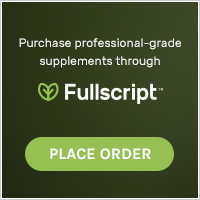
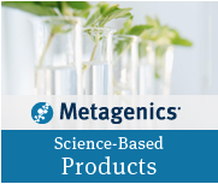



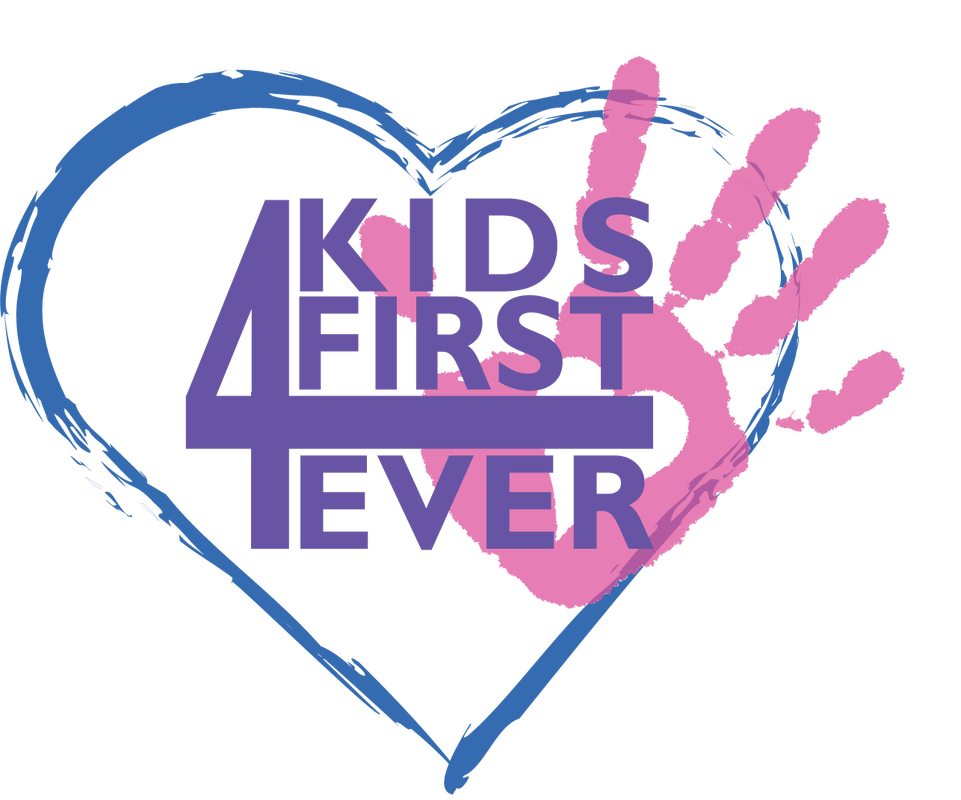

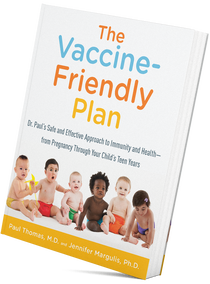
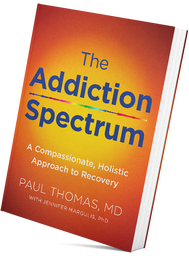
 RSS Feed
RSS Feed
